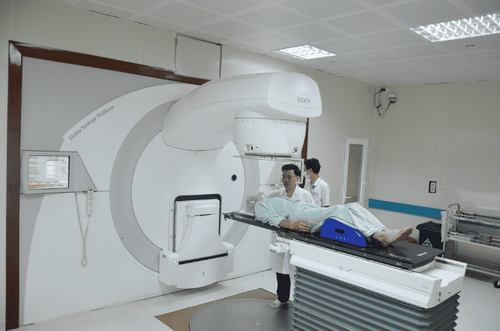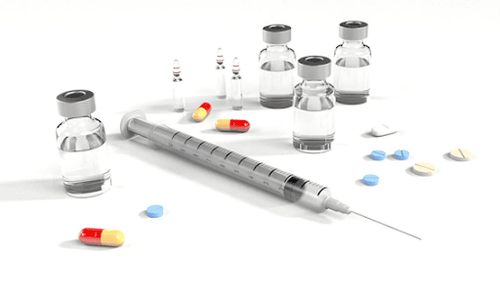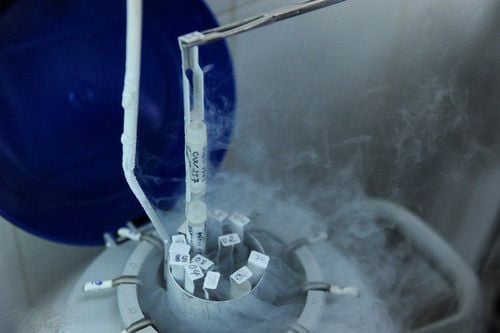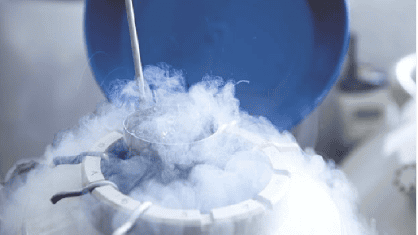This is an automatically translated article.
Many cancer treatments have temporary or permanent effects on male fertility. Therefore, before starting treatment, consult with your doctor about the risk of affecting your fertility as well as solutions to preserve your fertility.1. How do treatments affect fertility?
Cancer and cancer treatments cause fertility problems in two main ways:Damage to the endocrine glands or endocrine-related organs. These are the testicles, thyroid, adrenal glands, ... which are glands, hormone-secreting organs that control puberty and reproduction. Affects the brain, thereby affecting the endocrine system. Reproductive problems result from:
Low quality sperm. Sperm count is reduced. Decrease or loss of the ability to secrete semen (semen is the fluid produced in the testicles, during sex it carries sperm).
2. Cancer treatments affect fertility
The following cancer treatments have or may cause unwanted effects on fertility:2.1 Chemotherapy Some of the following chemotherapy drugs (especially alkyl agents) chemical) causes reproductive problems in humans:
Busulfan (Busulfex, Myleran). Carmustine (BiCNU). Chlorambucil (Leukeran). Cisplatin (Platinol). Cyclophosphamide (Neosar). Lomustine (CeeNU). Mechlorethamine (Mustargen). Melphalan (Alkeran). Procarbazine (Matulane). 2.2 Radiation Radiation therapy can destroy sperm as well as the germ cells that will later form sperm.
Types of radiation therapy that can affect fertility include:
Systemic radiation therapy in preparation for a bone marrow transplant. Radiation therapy to the mid-body area, including the abdomen, pelvis, lower spine, and testicles. Radiation therapy to the pituitary gland (located in the brain). 2.3 Surgery Surgical removal of the following organs affects fertility:
Prostate. Bladder. One or both testicles. Pelvic lymph node dissection surgery.

Xạ trị có thể phá hủy tinh trùng cũng như các tế bào mầm sẽ hình thành nên tinh trùng sau này
3. Various effects of cancer treatment on fertility
The impact of cancer treatment on fertility varies from man to man. For some people it will be permanent, while for others it will be temporary (although it can last up to several years), then fertility can return (and may not be the way it was before). during treatment).Factors that increase the risk of fertility problems:
High doses of radiation or chemotherapy. Had fertility problems prior to treatment. Many years (over 40) (although infertility caused by cancer treatment can happen at any age). Younger patients treated for cancer before puberty may have less damage to sperm. However, high-dose treatment can still cause permanent infertility in the future, as is the case with chemotherapy in preparation for a bone marrow transplant.
Many experts recommend that after cancer treatment, wait about 6 months before trying to conceive. This is the time it takes for the sperm to recover.
4. Advice on preserving male fertility
The American Society of Clinical Oncology (ASCO) recommends that all men with cancer consult their doctor about infertility and preserve male fertility as soon as possible. well before proceeding with treatment.Reproductive conservation options must be based on:
Age. Physical and sexual maturity. Marital relationship status. Patient's wishes. Methods of preserving male fertility recommended by the American Society of Clinical Oncology include:
Sperm storage: this process involves freezing and then storing semen. This method works best if done before the treatment, because after the new treatment, storing sperm, it is likely that those sperm have damaged genetic material. Frozen semen can be used later, through intrauterine insemination or artificial insemination. Sperm storage is the right choice for most men who have gone through puberty. With intracytoplasmic sperm injection (ICSI), just a few sperm is enough for a man to become a father. Testicular tissue freezing: this is a method that is still being researched, for patients who have not yet reached puberty. Testicular tissue, once removed, is frozen and stored for future use.

Lưu trữ tinh trùng - quá trình này sẽ tiến hành đông lạnh rồi lưu trữ tinh dịch
5. Preserving fertility before radiation therapy
Most fertility preservation methods need to be done before entering the treatment process. However, if radiation therapy is required, the patient can use a lead shield to protect the testicles, preventing sperm from being damaged. This is very possible if the patient has cancer in areas outside the pelvis.6. Consider fertility preservation methods
Not all fertility preservation methods are suitable for everyone. Consider the following:Cost to implement the method. Effective method brings. Psychological effects on the patient, especially when the patient is under stress.
7. Reference questions that patients can use
During the consultation process from the doctor, the patient can refer to some of the following questions to make the consultation process more convenient and easier:How does each treatment affect fertility any? Which method has the lowest risk? What are the reproductive conservation options available? Will fertility preservation methods affect the course of treatment? Do fertility-conserving methods increase the risk of cancer recurrence? When is it possible to conceive after treatment? Established in November 2014, until now, Vinmec IVF Fertility Center - Vinmec Times City International Hospital has provided reproductive support for more than 1000 infertile couples as well as conserving children. fertility treatment for men/women with a success rate of over 40%. This rate is equivalent to developed countries such as UK, USA, Australia,..
Reproductive Support Center - Vinmec International General Hospital has the following outstanding advantages:
Being the leading center in Vietnam developed and applied comprehensive treatment and examination. It is home to a team of leading experts in the field of obstetrics and gynecology nationally and internationally. Customers are advised to understand the important meanings of egg storage, and are examined and assessed for the service status for storing eggs by leading experts in the industry. At Vinmec, the doctors and technicians who directly perform egg freezing have been trained at leading domestic and international fertility support centers to perform the process smoothly. Therefore, Vinmec achieves a very high percentage of eggs after defrosting, 95 - 98%. There was no difference in the quality of embryos from frozen and non-coagulated eggs. The egg retrieval process is quick and painless. Modern medical equipment for examination and collection of eggs and ensuring egg storage in the most optimal environment for the longest time.
Please dial HOTLINE for more information or register for an appointment HERE. Download MyVinmec app to make appointments faster and to manage your bookings easily.
Article referenced source: cancer.net












